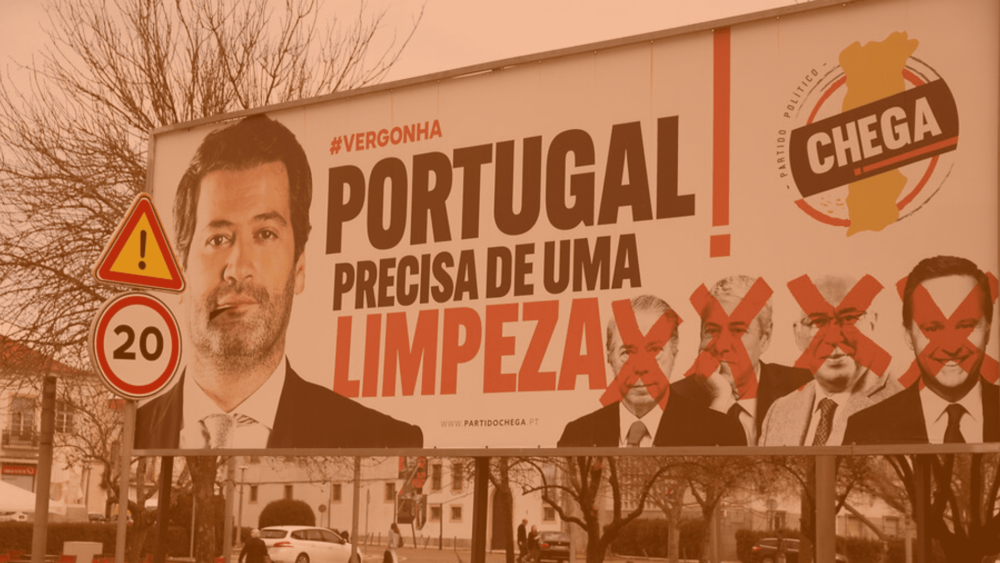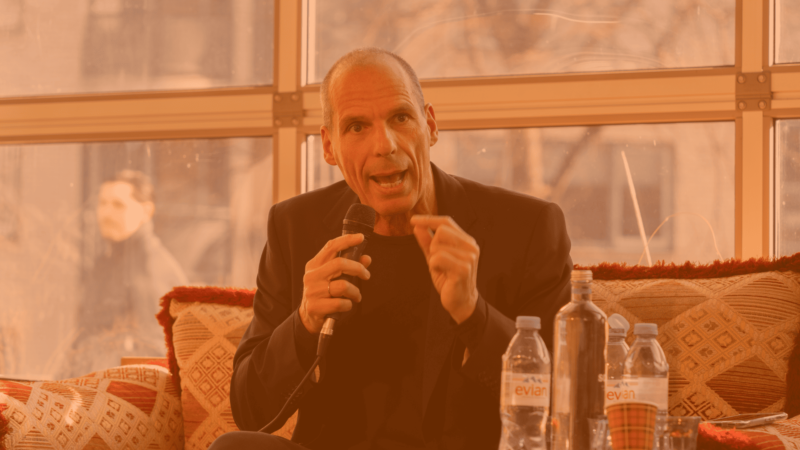The rise of Chega is not just the result of an intolerant, racist and xenophobic Portugal, it is above all the result of neoliberal economic measures that favour a few at the expense of others
If the message voiced by liberals through consumer society and hyper-productivity reproduces Ayn Rand‘s objectivism which is, in essence, an ode to individualism to the detriment of our principles and values, it is only to be expected that our so-called ‘nature’ inhabits these ideals. But if neoliberalism and capitalism represent the triumph of individualism and the cynical desire for profit, then fascism and other forms of authoritarian and repressive conservatism signal the defeat of the latter’s promises by cannibalising its illusions. In other words, neoliberalism and capitalism provide the far-right with the weapons it needs to carry out the oppressive conservative revolution.
Class struggle is often tossed around in the space of public debate by the system’s political parties as something inevitable and inherently human, but it does not have to be. At most, this speech works as a necessary sedative to numb the restlessness of those most in need. Feelings of revolt and anger are often perceived as negative and destructive, but, in this case, it is the only weapon that people have against the elites’ virtually endless resources.
And this anger is already there, within us, every day, boiling up and feeding a constant paranoia whose only remedy, they say, is profit, status, the promise of riches delivered at long last. This is the height of neoliberal illusionism. Using this feeling of “class superiority”, as Chega’s Rita Matias, from Portugal’s far-right party, recently said when she plagiarised president Javier Milei’s speech. The far-right channels popular indignation and outcry against everything and everyone except the neoliberal policies of both PSD and PS, Portugal’s main political parties, the former social-democratic and, the latter, socialist, albeit only in name. It is no wonder that André Ventura, Chega’s leader, saw his party grow from 12 deputies to 50 after the March 10 elections.
Chega’s rise is not only the result of an intolerant, racist and xenophobic Portugal, it is, above all, the result of neoliberal measures that favour the few and not the many: chronic low wages, non-taxation of great fortunes and inheritances, extended disinvestment in the National Healthcare Service, aggravated by public-private partnerships, amongst others, generated an avalanche of discontent that brought down the legitimacy of both PS and PSD to govern. Because of their lacklustre policies, and their allegiance to neoliberalism, like any scavenger, the far-right swoops in to feast on the bones of the country’s shattered dreams.
Since April 25, Portugal has been the victim of deliberate political autophagy. The lack of political will towards the culture and education sector are just two more symptoms of neoliberal cynicism. These sectors are essential for any democracy to truly thrive. Only by practicing informed and active citizenship can we equip ourselves with the weapons we need to defend ourselves against neoliberal and far-right rhetoric.
And economic growth will not save us if the distribution of wealth is disproportionate, as it has always been under capitalism and the right. Let us remember Portugal’s growth during the 1960s, during the ultraconservative Estado Novo regime, when reinvestment of capital in the public sphere was scarce. In fact, low investment and low wages were strategic to attract foreign investment, particularly from the United States. This strategy accelerated wage inequality and mass immigration, mainly to France.
“In the 70s, Portugal continues to be the poorest country in Western Europe. Immigration reaches much higher levels, exceeding 100 thousand departures annually”, says Yves Léonard, a French historian who’s an expert in Portuguese history.
Interestingly, between 1965 and 1973, a time of enormous tourist influx in the country, around one million in ‘65 and four million in ‘73, inflation reached new heights in Portugal due to tourism and the intensification of emigration, reaching 20 percent in 1973. This same pattern can still be felt today. This kind of growth is synonymous with a strong capture of wealth that feeds on chronic precariousness.
But there are solutions. We must reject neoliberalism and capitalism all together and create policies that foster a fair distribution of wealth, that strengthen culture, science, knowledge, the environment, citizenship, critical thinking. All of this is only possible with the rejection of neoliberal policies and the implementation of real socialism, not one based on fantasies and band-aids like PS has done over the years. A convergence to the left and mass mobilisations are urgently needed so that the dignity of our people can be restored.
Do you want to be informed of DiEM25's actions? Sign up here















